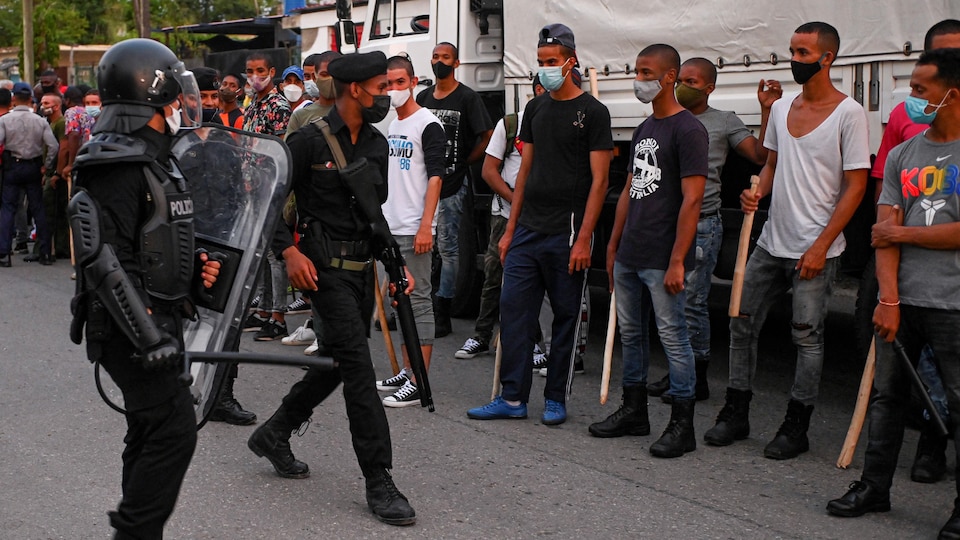Ten months after the unprecedented uprisings in the summer of 2021, Cuba adopted a new Penal Code aimed at “protecting” the socialist system by banning demonstrations in particular.
Parliament approved on Sunday, this new code protects the interests of the state and citizenssaid the president of the Supreme Court, Rubén Remigio Ferro.
The most serious violations regarding the abusive use of constitutional rights, participation in subversive activities, as well as attacks through information technologies will be punished.said Mr. Iron.
The text punishes specific Internet political activities, demonstrations and overseas funding of certain activities.
Just published on the website of the general prosecutor’s office in March, the bill was rejected by opponents of the communist government.
The new Penal Code is a new screw of the regime to intensify repression against citizensis estimated René Gomez Manzano, president of Corriente Agramontista, the oldest organization of Cuban dissident lawyers.
Cuba does not need the Penal Codeestimated for his part the jury Harold Bertot, professor at the University of Havana. Chronologically, its discussion and then its entry into force coincided with a moment of political and social tension in Cuba.
This code relying on greater criminalization of offenses and on strengthening penaltieshe regrets. It was designed to have a major impact on Cuban political activism.
In the existing offense of public unrest, is now added in connection with the holding of individual or group events. The new code also penalizes foreign funding of activities against state security.
Consequently, the independent or opposition media, activists and dissident groups will be considered mercenaries if they receive money from U.S. agencies and NGOs and face sentences of four to ten years in prison.
This text is part of a series of laws, such as regarding food sovereignty, Family Code and personal data, intended to complete the new Constitution approved in 2019.
It was adopted less than a year after historic demonstrations on July 11 and 12, 2021, unprecedented in 60 years of revolution, leaving one dead and dozens injured. More than 1,300 people were arrested, many of them receiving heavy sentences of up to 30 years in prison.
Source: Radio-Canada
